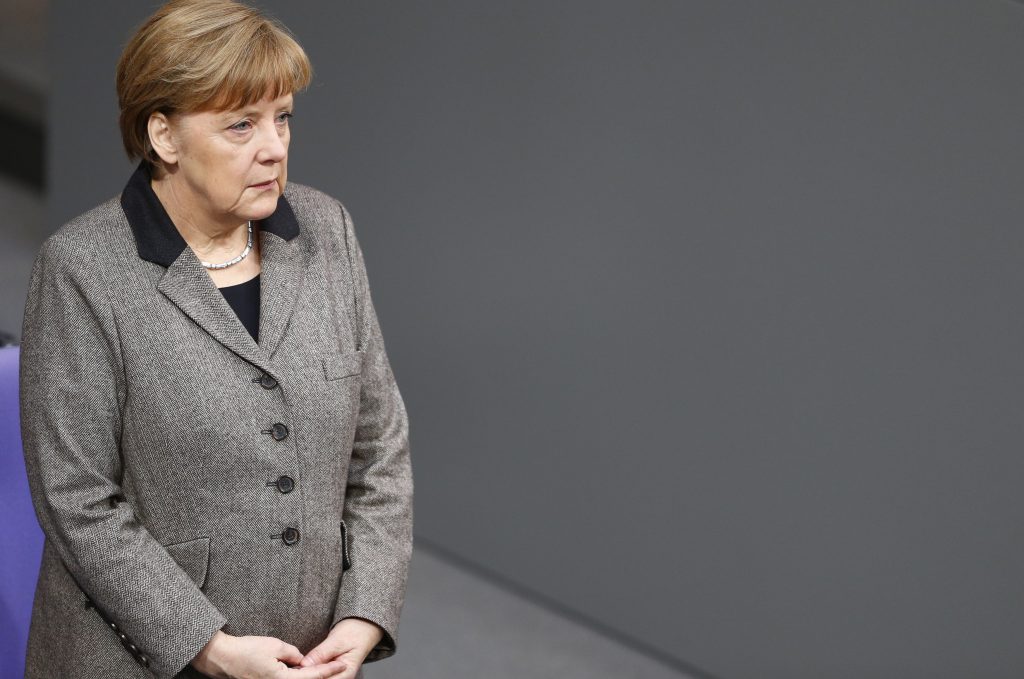!["[N]ow is exactly the wrong moment for the United States and Europe—particularly Germany—to turn inward or mistrust each other," says Alton V. Buland, Country Director for Turkey, Cyprus, and Malta in the Office of the Under Secretary of Defense for Policy. German Chancellor Angela Merkel is pictured above. (Reuters/Hannibal Hanschke)](http://www.atlanticcouncil.org/wp-content/uploads/2015/03/MerkelFeature.jpg) Instability arcs along Europe’s periphery from the Middle East and North Africa up the Black Sea and into the Arctic, while transnational security challenges (climate change, cyber threats, etc.) challenge our future. At the same time, the bonds of Cold War transatlantic solidarity have weakened as new generations arise and isolationist/nativist movements reemerge on both continents. Yet now is exactly the wrong moment for the United States and Europe—particularly Germany—to turn inward or mistrust each other. Today’s crises require transatlantic leadership and solidarity as revanchist-minded powers such as Russia and China stand ready to take advantage of any retrenchment to set new terms for the 21st century order.
Instability arcs along Europe’s periphery from the Middle East and North Africa up the Black Sea and into the Arctic, while transnational security challenges (climate change, cyber threats, etc.) challenge our future. At the same time, the bonds of Cold War transatlantic solidarity have weakened as new generations arise and isolationist/nativist movements reemerge on both continents. Yet now is exactly the wrong moment for the United States and Europe—particularly Germany—to turn inward or mistrust each other. Today’s crises require transatlantic leadership and solidarity as revanchist-minded powers such as Russia and China stand ready to take advantage of any retrenchment to set new terms for the 21st century order.
In order to reinvigorate US-German relations to meet these challenges we must begin by fortifying the popular, democratic support necessary for a strong transatlantic relationship and ensure sustained global engagement. This should occur across several realms:
Historical awareness: For today’s generation, the Edward Snowden issue resonates more than the Berlin Airlift. We should reiterate through commemorations of historic anniversaries (e.g., 70th anniversaries of the United Nations and the Marshall Plan), educational campaigns, and public discussion on both sides of the Atlantic, the significance of the international cooperation our forebears established in the wake of the second World War to avert a third. An appreciation for “what could have been” will help ensure Americans and Germans do not take for granted a global system that is guided by the values and norms of liberal democracies and multilateralism.
Economic opportunities: Many people estimate China’s GDP will overtake the United States’ within ten years. Therefore, the opportunity for the United States and the European Union to set principled global economic rules of the road for the coming decades is now. We must deepen US-EU economic ties and influence through trade agreements such as the Transatlantic Trade and Investment Partnership (TTIP). It also means ensuring more individuals across all segments of society on both continents truly benefit from the fruits of globalization.
Strategic culture: Sequestration (a budgetary Eigentor, or “own-goal”) threatens to harm US military prowess. More worryingly, European defense cuts have not just cut muscle in seeking to trim fat, but have nicked bone at a time when the United States needs capable partners. Germany has long appeared both unwilling to invest seriously in its military and reluctant to employ it. This reflects a stunted German strategic culture—one which the United States helped fashion in the postwar years—that now must mature for Germany to protect its interests and contribute to meeting the new century’s security challenges. Building on the dialogue sparked by German President Joachim Gauck (“our country is not an island”), institutions such as the Atlantic Council should help foster national conversations in Germany, wider Europe, and the United States on the need for robust leadership from Berlin on international security. As former Polish Foreign Minister Radosław Sikorski stated a couple of years ago, “I fear German power less than I am beginning to fear German inactivity.”
Transatlantic youth: To have a long-term impact, these conversations cannot be limited to the political elite. They must also include the rising generation. We should double student exchange programs and young professionals’ dialogues, which should also include representatives from emerging economies and other future partners. Creative initiatives such as joint international service programs (perhaps a US-EU Peace Corps) or more online educational collaboration (joint classroom science/engineering projects, including transatlantic business partners) could help foster a new, globally literate transatlantic generation.
Alton V. Buland is Country Director for Turkey, Cyprus, and Malta in the Office of the Under Secretary of Defense for Policy. The views herein are his own and do not necessarily represent those of the United States Department of Defense or the United States government. Buland is a participant in the US-German Next Generation Project’s Next Generation Network at the Atlantic Council’s Brent Scowcroft Center on International Security.
Image: "Well-informed observers credit German Chancellor Angela Merkel (above) and European Council President Donald Tusk of Poland with ... convincing EU leaders to extend sanctions" on Russia, writes John E. Herbst, Director of the Atlantic Council's Dinu Patriciu Eurasia Center. (Reuters/Hannibal Hanschke)
